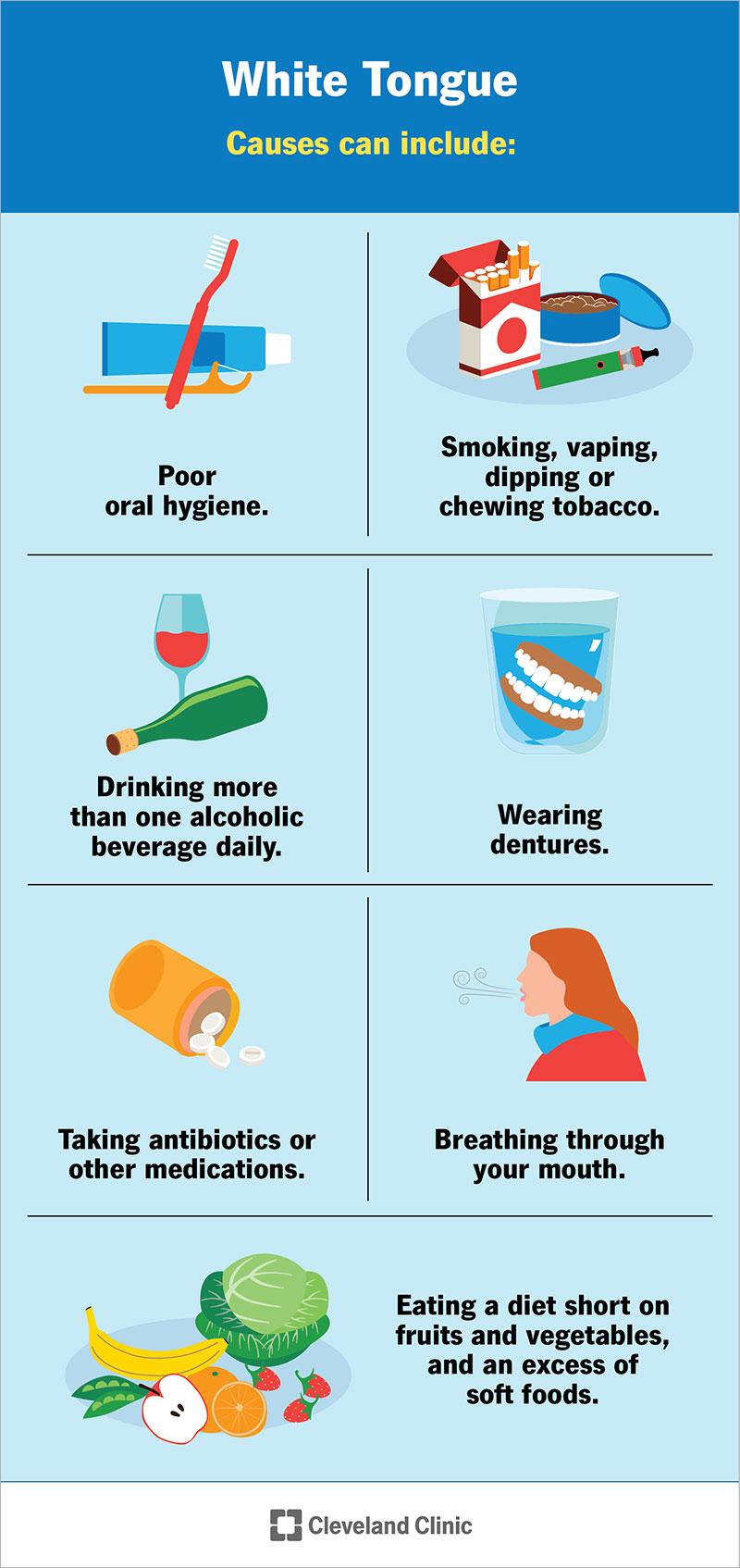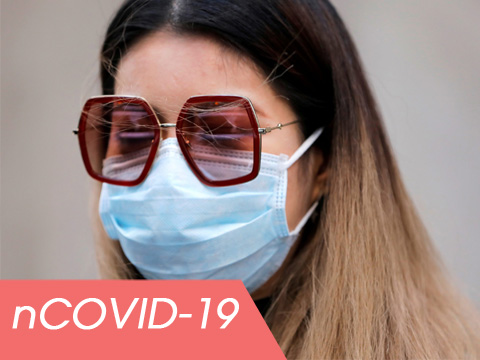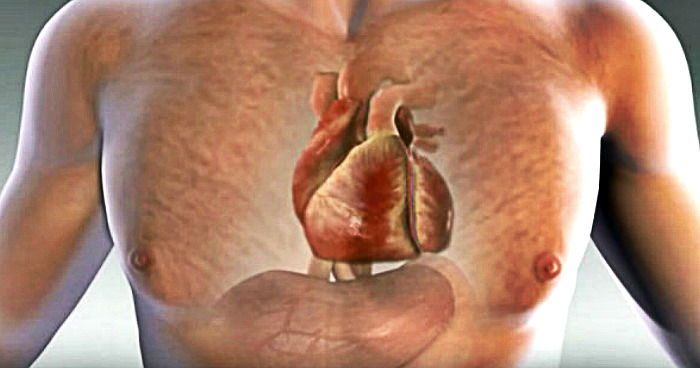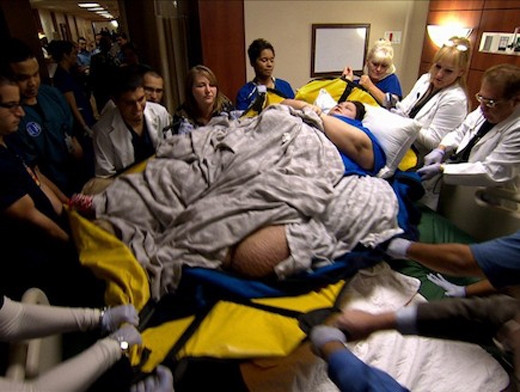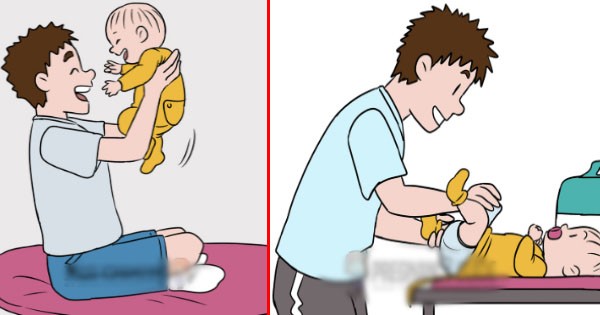
Your tongue can look white due to collected debris or due to a health condition like a fungal infection or leukoplakia. Sometimes certain medications or oral cancer can cause white patches in the mouth.
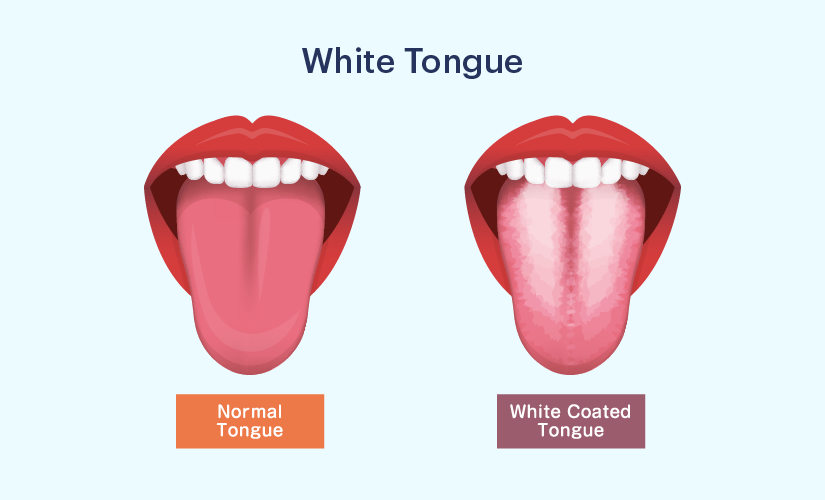
Overview
The sight of a white tongue reflected back at you in your bathroom mirror might look frightening, but this condition is usually harmless. White tongue refers to a white covering or coating on your tongue. Your whole tongue might be white, or you could just have white spots or patches on your tongue.
A white tongue is usually nothing to worry about. But on rare occasions, this symptom can warn of a more serious condition like an infection or early cancer. That’s why it’s important to keep an eye on your other symptoms, and call your doctor if the white coating doesn’t go away in a couple of weeks.
Keep reading to learn more about why this happens and whether you should treat it.
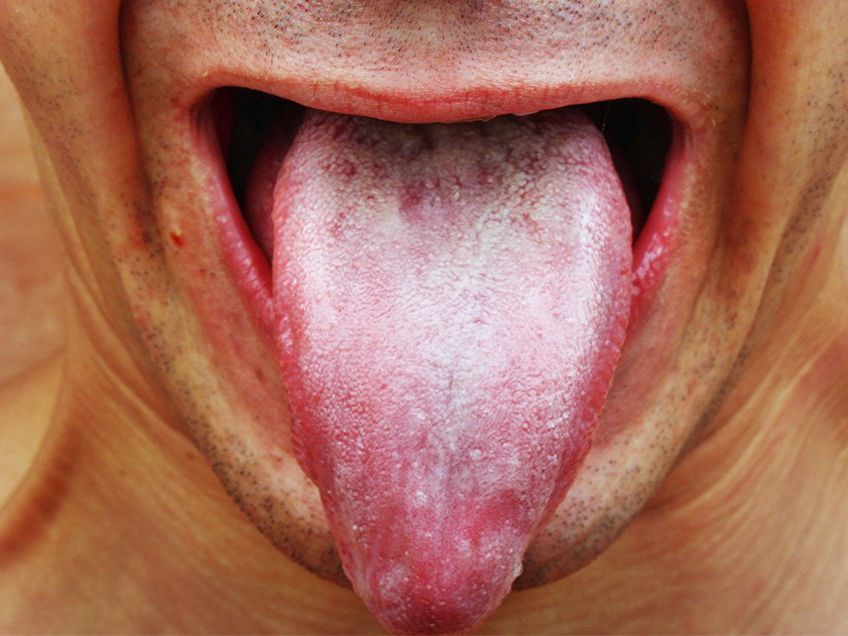
White tongue is often related to oral hygiene. Your tongue can turn white when the tiny bumps (papillae) that line it swell up and become inflamed.
Bacteria, fungi, dirt, food, and dead cells can all get trapped between the enlarged papillae. This collected debris is what turns your tongue white.
All of these conditions can cause white tongue:
- poor brushing and flossing
- dry mouth
- breathing through your mouth
- dehydration
- eating a lot of soft foods
- irritation, such as from sharp edges on your teeth or dental instruments
- fever
- smoking or chewing tobacco
- alcohol use
A few conditions are linked to white tongue, including:
Leukoplakia: This condition causes white patches to form on the inside of your cheeks, along your gums, and sometimes on your tongue. You can get leukoplakia if you smoke or chew tobacco. Excess alcohol use is another cause. The white patches are usually harmless. But in rare cases, leukoplakia can develop into oral cancer.
Oral lichen planus: With this condition, a problem with your immune system causes white patches to form in your mouth and on your tongue. Along with the white tongue, your gums may be sore. You might also have sores along the inside lining of your mouth.
Oral thrush: This is an infection of the mouth caused by Candida yeast. You’re more likely to get oral thrush if you have diabetes, a weakened immune system from a condition like HIV or AIDS, an iron or vitamin B deficiency, or if you wear dentures.
Syphilis: This sexually transmitted infection can cause sores in your mouth. If syphilis isn’t treated, white patches called syphilitic leukoplakia can form on your tongue.
Other conditions that may cause white tongue include:
- geographic tongue, or missing patches of papillae on your tongue that look like islands on a map
- medicines such as antibiotics, which can cause a yeast infection in your mouth
- mouth or tongue cancer
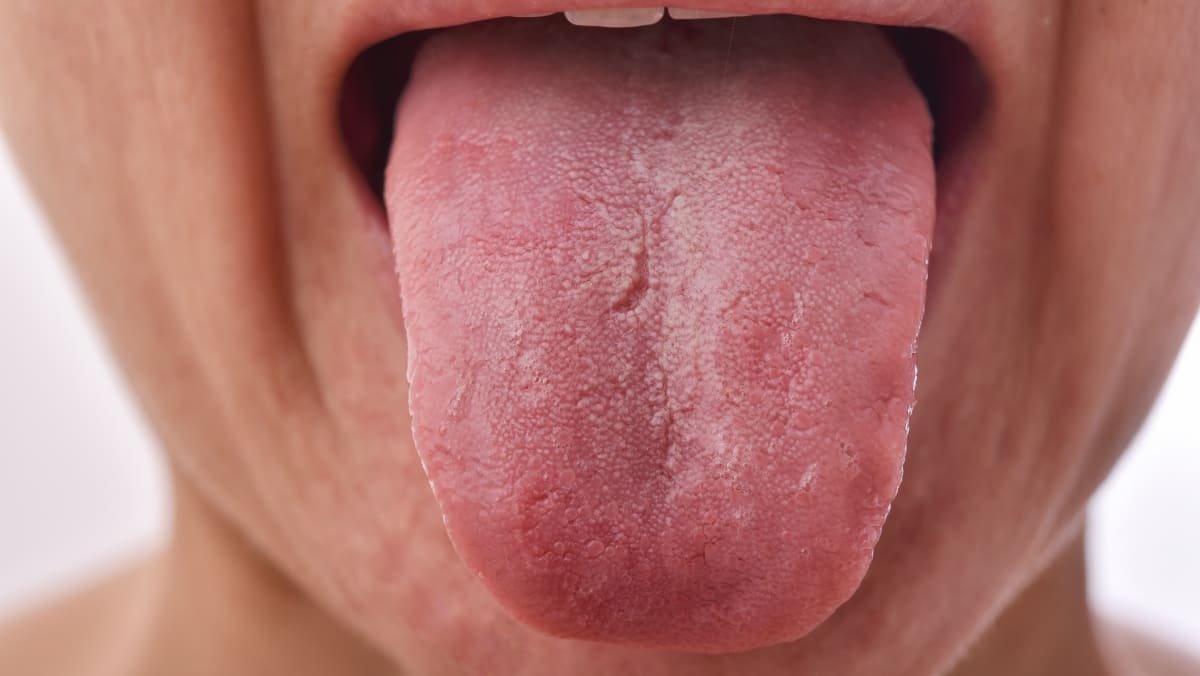
Treatment options
A white tongue may not need to be treated. This symptom often clears up on its own.
You may be able to remove the white coating from your tongue by gently brushing it with a soft toothbrush. Or softly run a tongue scraper across your tongue. Drinking lots of water can also help flush bacteria and debris out of your mouth.
If you do need treatment, which one you get will depend on the condition that’s causing your white tongue:
- Leukoplakia doesn’t need to be treated. However, you should see your dentist for regular checkups to make sure the condition isn’t getting worse. To clear up the white patches, stop smoking or chewing tobacco, and reduce the amount of alcohol you drink.
- Oral lichen planus also doesn’t need to be treated. If your condition is severe, your doctor might prescribe a steroid spray or a mouth rinse made from steroid pills dissolved in water.
- Oral thrush is treated with antifungal medicine. The medicine comes in several forms: a gel or liquid that you apply to your mouth, a lozenge, or a pill.
- Syphilis is treated with a single dose of penicillin. This antibiotic kills the bacteria that cause syphilis. If you’ve had syphilis for more than a year, you might need to take more than one dose of the antibiotic.

If a white tongue is your only symptom, you don’t necessarily need to see your doctor. But if it doesn’t go away in two weeks, you might want to consider calling for an appointment.
Call sooner if you have these more serious symptoms:
- Your tongue is painful or it feels like it’s burning.
- You have open sores in your mouth.
- You have trouble chewing, swallowing, or talking.
- You have other symptoms, like a fever, weight loss, or skin rash.

How to prevent a white tongue
It’s not always possible to prevent white tongue. However, there are a few things you can do to reduce your odds of getting this condition.
Practice good oral hygiene is key. This includes:
- using a soft-bristled brush
- using a fluoride toothpaste
- brushing your teeth twice a day
- using a fluoride mouthwash daily
- flossing at least once a day
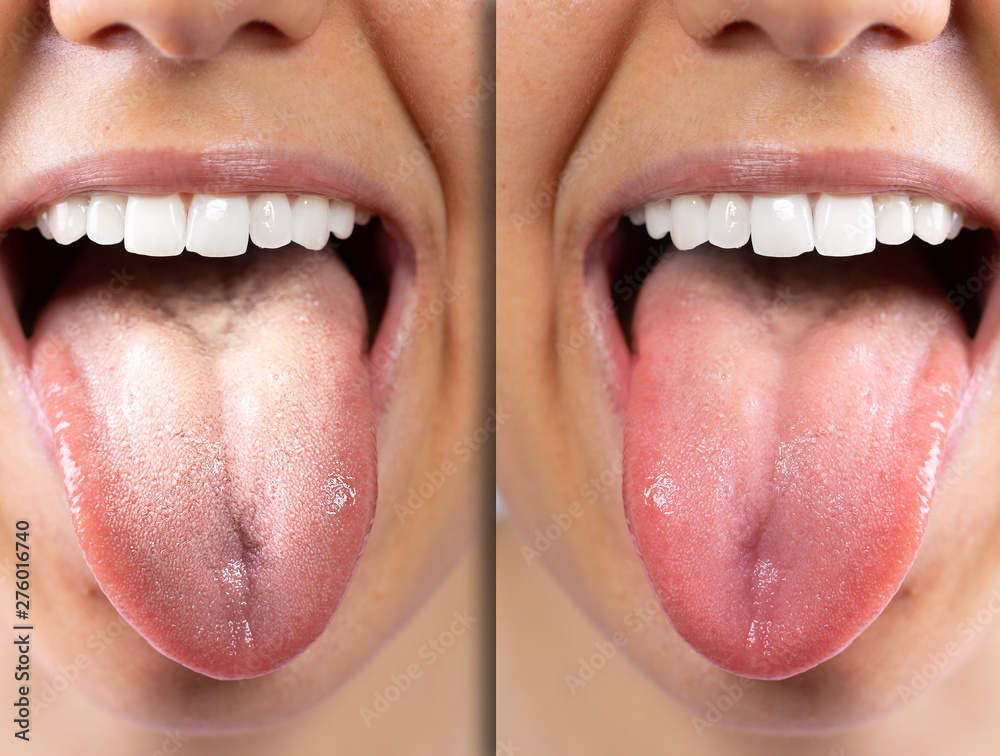
Here are a few other tips for preventing a white tongue:
- See your dentist every six months for a checkup and cleaning.
- Avoid tobacco products, and cut back on alcohol.
- Eat a varied diet that contains lots of fresh fruits and vegetables.
How to Stay Warm in Winter and Avoid Winter Illnesses
Winter weather can be harsh, and it’s important to take steps to stay warm and healthy. Here are some tips on how to stay warm in winter and avoid winter illnesses:
- Dress warmly. This may seem like a no-brainer, but it’s important to wear layers of clothing so you can adjust your clothing as needed. Make sure your head, neck, hands, and feet are covered, as these are the areas that lose heat the fastest.
- Stay hydrated. Drinking plenty of fluids will help to keep your body temperature up. Avoid sugary drinks, which can dehydrate you.
- Get enough sleep. When you’re well-rested, your body is better able to fight off illness. Aim for 7-8 hours of sleep each night.
- Wash your hands frequently. This is the best way to prevent the spread of germs. Wash your hands with soap and water for at least 20 seconds, especially after using the bathroom, before eating, and after being around someone who is sick.
- Avoid close contact with people who are sick. If you can, stay home from work or school if you’re sick. If you must go out, wear a mask to help prevent the spread of germs.
- Get a flu shot. The flu shot is the best way to protect yourself from the flu. The flu can cause serious illness, especially in young children, older adults, and people with chronic health conditions.
By following these tips, you can help to stay warm and healthy in winter.
Here are some additional tips that may help:
- Stay active. Exercise helps to warm up your body and boost your immune system.
- Eat healthy foods. Eating a balanced diet will help give your body the nutrients it needs to stay healthy.
- Use a humidifier. A humidifier can help to add moisture to the air, which can help to prevent dry skin and respiratory problems.
- Open your curtains during the day to let in natural light. Natural light helps to regulate your body’s natural sleep-wake cycle.
By following these tips, you can help to stay warm and healthy all winter long.
